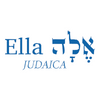In synagogues around the world, we hear the call of the shofar, traditionally made from the horn of a kosher ram, on the high holy days of Rosh Hashana and Yom Kippur.
There are several explanations as to why we blow the shofar in the first place, especially because Jewish religious practice has nearly no other traditions that specifically involve musical instruments. So why do we sound the shofar at all?

The call of the shofar is meant to feel like a sort of wake-up call, a startling alarm to notify you that the new year is here, and now is the time to start paying attention to your actions and the world around you. During a traditional Rosh Hashana service, the shofar is sounded a whole 100 times, and each type of blast has a different meaning.
Tekiah, the single blow, is meant to grab attention, like a military general calling to his troops. When you hear the first tekiah, you know it’s time to get down to business.
Next is shevarim, which is three broken blows, which some say sound like crying. Some scholars think that shevarim is meant to symbolize our tears – either of joy or of sadness – at another year passing.
The third sequence is called truah, which consists of nine or more staccato blows. Truah is the blaring alarm clock that you can’t turn off – it's your wake up call to the new year.
In addition to sounding the shofar on Rosh Hashana and Yom Kippur, many Jewish communities around the world also take on a practice of sounding the horn every day for the month leading up to the new year. This is a way of building excitement for the holiday, by experiencing a tiny bit of Rosh Hashana festivity each day leading up to the real thing. There are several reasons that scholars give for blowing the shofar during Elul:
1) After the golden calf incident, Moses ascended Mount Sinai a second time to retrieve the replacement tablets. We learn that his ascent started on the first of Elul and lasted until Yom Kippur, and that each day was accompanied by shofar blasts. Thus, we blow the shofar each during the month of Elul to commemorate Moses' long journey
2) During Elul, we search our souls and reflect on the past year in preparation for Rosh Hashana. The sound of the shofar inspires us to reconnect with G-d and with ourselves
3) Because blowing the shofar is a practice traditionally associated with Rosh Hashana, sounding the horn every day for a whole month will successfully confuse the prosecuting angel (the Satan) who will have no idea which day is the real Rosh Hashana
This month, we invite you to explore the tradition of the Elul shofar with your family, friends, and community. This is an especially sweet tradition for families with young children, as learning to blow a shofar can be one of the most fun and engaging Jewish practices for both kids and adults.
Our newest Rosh Hashana collection includes several sleek and festive shofar designs, in a variety of sizes suited to fit all ages.
Shana tova!


